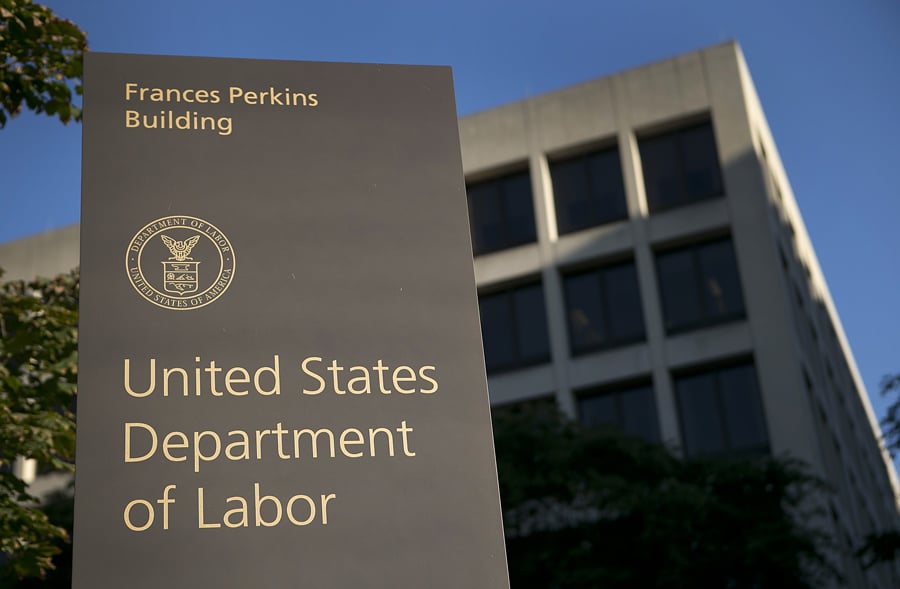

Retirement plan advisers should think twice before making cryptocurrency an investment option in a 401(k) plan, the DOL warned Thursday, vowing to investigate those who do.
The Department of Labor has noticed over the last few months that financial services firms are marketing cryptocurrency investments to 401(k) sponsors as investments for plan participants, the agency said in a compliance release.
It cautioned plan fiduciaries “to exercise extreme care” before adding crypto to the investment menu of a 401(k) plan.
“At this early stage in the history of cryptocurrencies, the Department has serious concerns about the prudence of a fiduciary's decision to expose a 401(k) plan's participants to direct investments in cryptocurrencies, or other products whose value is tied to cryptocurrencies,” the compliance release states. “These investments present significant risks and challenges to participants' retirement accounts, including significant risks of fraud, theft, and loss.”
The agency cited the speculative and volatile nature of crypto investments, as well as concerns about valuation, custody and record keeping.
The Employee Benefits Security Administration said it will launch an “investigative program” aimed at retirement plans that offer crypto investments. “The plan fiduciaries responsible for overseeing such investment options or allowing such investments through brokerage windows should expect to be questioned about how they can square their actions with their duties of prudence and loyalty in light of the risks.”
The DOL admonishment about crypto investing comes a day after President Biden issued an executive order for a governmentwide effort to establish policies for digital assets.
The agency is concerned that if cryptocurrency is available on a 401(k) menu, it will be perceived by plan participants as a safe investment instead of one that comes with substantial risks.
“What exactly is the message that a participant’s receiving as they see cryptocurrency on their core investment lineup,” Ali Khawar, DOL acting assistant secretary and EBSA head, said during a Thursday webinar sponsored by the American Academy of Actuaries. “Are they receiving messages about the security and appropriateness of those investment options that maybe aren’t really appropriate? And it wasn’t clear to us that the fiduciaries who are making these decisions are going into them with their eyes fully open.”

Relationships are key to our business but advisors are often slow to engage in specific activities designed to foster them.

Whichever path you go down, act now while you're still in control.

Pro-bitcoin professionals, however, say the cryptocurrency has ushered in change.

“LPL has evolved significantly over the last decade and still wants to scale up,” says one industry executive.

Survey findings from the Nationwide Retirement Institute offers pearls of planning wisdom from 60- to 65-year-olds, as well as insights into concerns.
Streamline your outreach with Aidentified's AI-driven solutions
This season’s market volatility: Positioning for rate relief, income growth and the AI rebound
